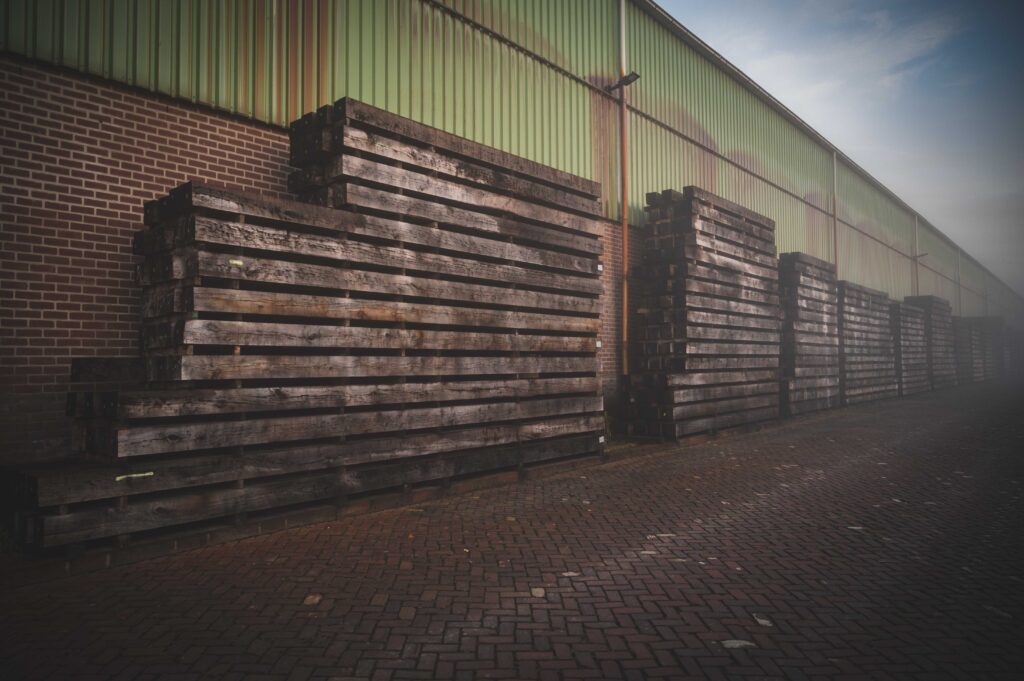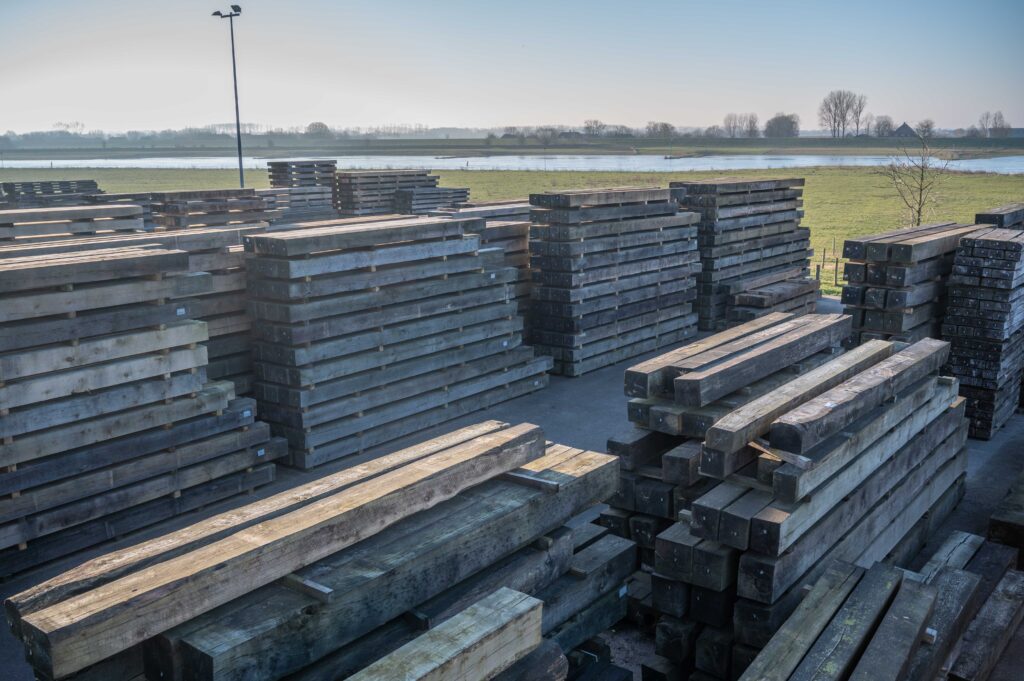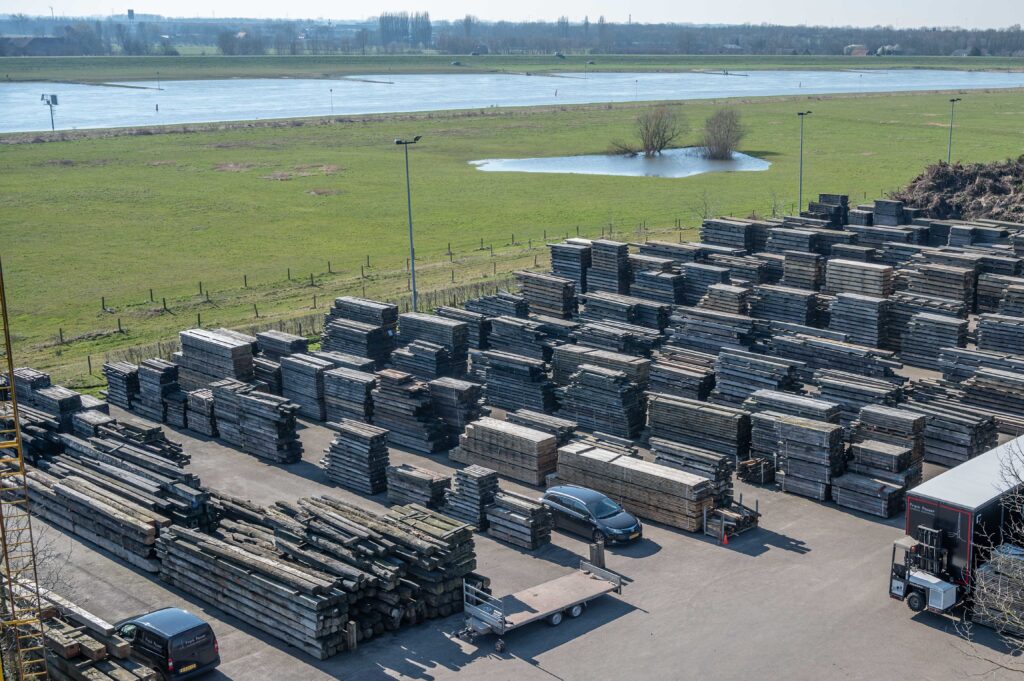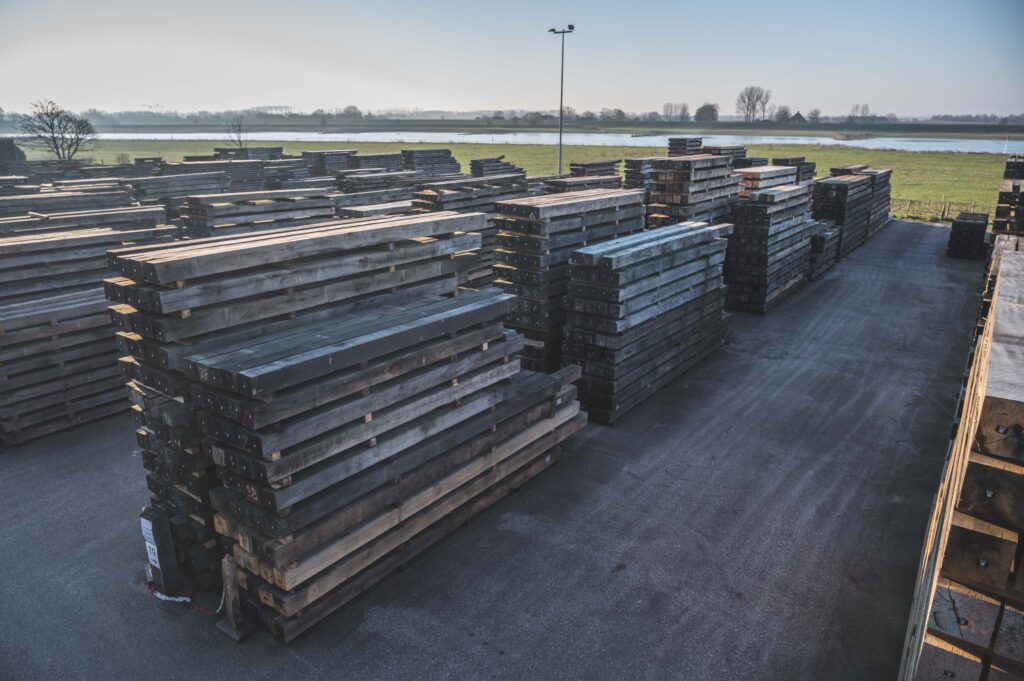Opened today until 16:00
Opened today until 16:00
Oak, similar to wine and whiskey, improves in quality over time. The longer oak dries in the open air, the lower the moisture content becomes and the better the quality of the wood. Low-moisture oak offers several advantages. It is less susceptible to deformation and is easier to machine.
Fresh oak still contains a high percentage of moisture: about 30 to 50%. If fresh oak is used in a structure, there is a good chance that the wood will warp, shrink and crack during the drying process.
Oak dries best outdoors and will dry naturally due to the various weather conditions; the moisture content will decrease at a moderate rate through contact with the wind and sun. It is essential that the beams or boards are battened on what is called stop wood or dry laths so that all surfaces of the wood are in direct contact with the outside air.
Wind-dried oak beams usually undergo a drying process of at least five years, and sometimes up to 10 years. The duration of this process depends on the head size of the beam. A larger, heavier oak beam needs more time to dry than a smaller, lighter one


More information about our stock of wind-dried oak beams?
Wind-dried oak is used in a variety of applications because of its many benefits. Going through this drying process results in stable wood compared to freshly cut wood. This makes it less susceptible to warping, cracking and other shape changes that can occur when wood is still damp. This stability is critical to prevent damage to, for example, facades and stucco after construction.
In addition, the drying process reduces the likelihood of insect and fungal attack, which is especially important if the wood is used outdoors or placed in humid environments.
Because the moisture has been reduced from the wood, wind-dried oakis lighterthan freshly cut oak. This can be an advantage in constructions where weight is a factor.
In addition, dry oak is generally easier to work with than damp wood. Whether sawing, planing or milling, the process is smoother and more precise.
The finish of painted or stained work is significantly improved by using dried oak. The finish of painted or stained work is significantly improved by using dried oak. Because the wood is more stable and drier, the finish will be more durable and also last longer.
Last but not least, wind-dried oak offers a distinctive look and color appreciated by many. The beams take on a beautiful natural graying hue through the influences of weather. This aesthetic aspect can be an important reason for choosing this type of wood.

The price level of wind-dried oak beams is generally higher than that of fresh-sawn oak. A comparison can be made with a bottle of red wine from the Bordeaux region; a 2016 bottle is typically pricier than a 2021 bottle. There are several logical reasons for this, including wind-dried oak.
First, certain oak beams or planks may warp or twist due to the drying process, making them unmarketable. In addition, the cost of the grounds and associated maintenance during the years of storage bring additional costs. Moreover, continuously checking the quality of the wood and carefully stacking it requires special attention. This is essential for an optimal drying process. In short, the long-term drying process requires, first of all, significant investments in money, but also time and care to ensure the process runs smoothly. This explains why wind-dried oak typically has a higher price point than freshly cut oak.

Wind-dried oak, similar to wine and whiskey, gains quality with time. Fresh oak initially contains 30 to 50% moisture, which can cause deformation in a project. Unlike fresh wood, wind-dried oak undergoes a process of at least five to 10 years of drying, resulting in more stable wood and also with a lower weight. It is less prone to deformation and cracking, and offers better protection against insects and mold. Despite a higher price point than fresh oak, the benefits may justify the investment for those who value quality.
Want to know more about wind-dried oak? Please feel free to contact us.